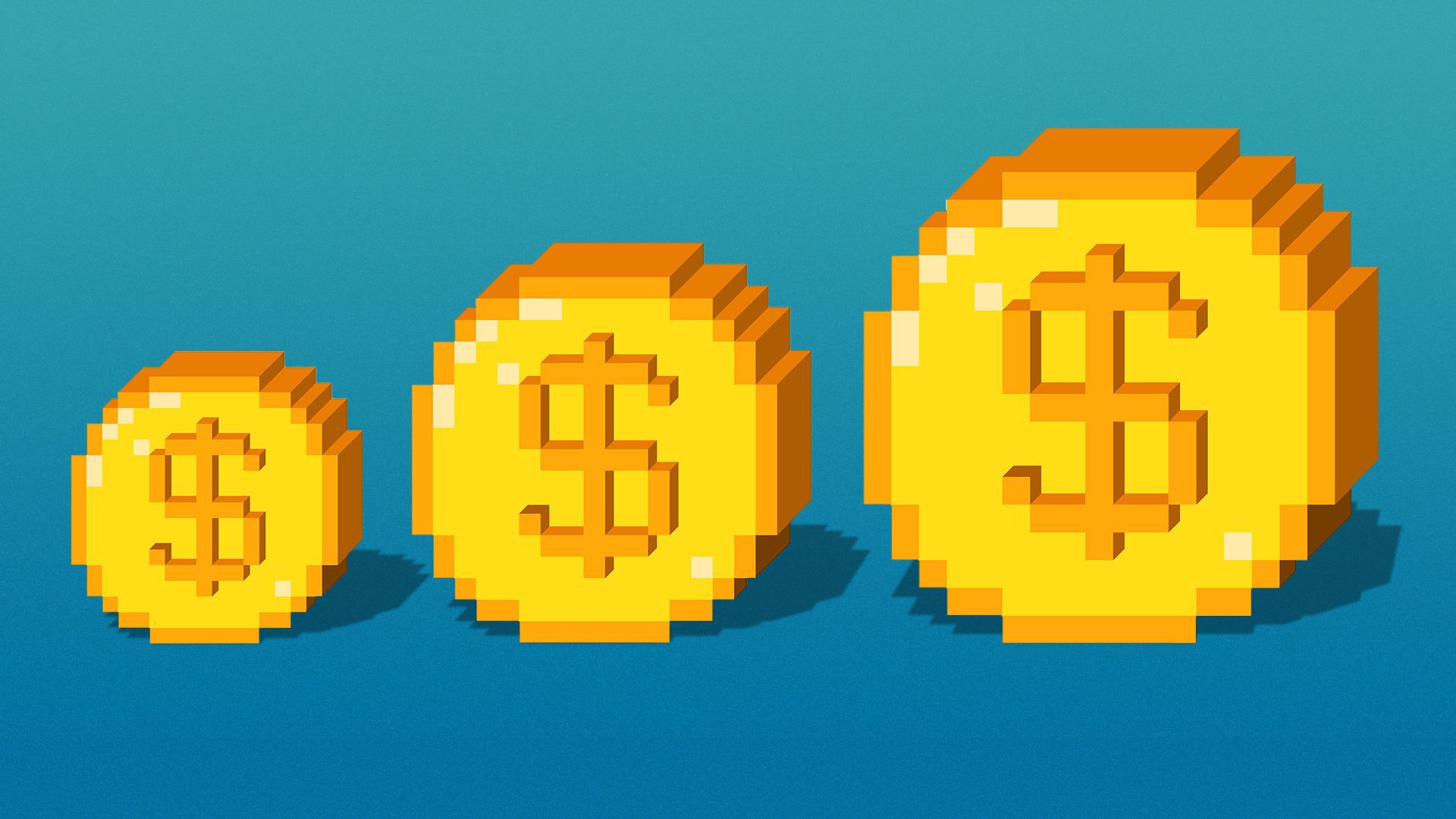Big gaming deals by Sony and Microsoft signal an arms race
Add Axios as your preferred source to
see more of our stories on Google.

Illustration: Annelise Capossela/Axios
Sony’s plan to buy Destiny developer Bungie is the latest move in an escalating arms race by video game industry leaders to outspend the competition for studios, franchises and players’ time.
The big picture: The games industry has grown immensely over the past decade, and so has competition for that revenue. Gaming’s heavy hitters are investing in popular developers and well-known titles to keep players on their side.
- Newzoo estimates that the video games industry pulled in over $180 billion in revenue in 2021.
- For context, the Motion Picture Association reported that the “combined global theatrical and home/mobile entertainment market” was about $80 billion in 2020.
Context: This acquisition arms race has picked up steam in the last several years, with over 250 gaming deals, valued at over $38 billion, happening in 2021 alone.
- The two largest gaming acquisitions of all time occurred in the last month: Grand Theft Auto publisher Take-Two snagged mobile giant Zynga for over $12 billion, and Microsoft plans to buy Activision Blizzard for $69 billion.
State of play: This studio shopping spree is about content and the ability to put that content, exclusively or not, on a variety of platforms.
- Microsoft’s Game Pass, a Netflix-like subscription game service for Xbox and PC, recently hit 25 million subscribers, and as Axios Gaming's Stephen Totilo reports, the service is central to the company’s long-term strategy.
- Sony is reportedly also building out its own Game Pass competitor, and Bungie games are likely to show up there.
Both Microsoft and Sony’s deal announcements came with assurances that popular titles wouldn’t immediately become exclusive.
- But Sony has built up a massive fan base for its PlayStation-only blockbuster titles — and Microsoft has said recent acquisition Bethesda's upcoming game will appear only on Xbox, PC and Game Pass.
It's not just console makers, consolidation is also happening with Big Tech companies trying to break into gaming by using existing platforms.
- Netflix bought Night School Studio last year.
- Google bought a Triple A studio in 2019 for its struggling Stadia service.
Flashback: Since the late 1980s, gaming rivalries have been largely box-based.
- Either you were a Nintendo kid or a Sega kid. More recently, you played Xbox, PlayStation, Nintendo and/or PC.
- But now you can play Fortnite on any device, Destiny 2 is available across all non-mobile platforms and Microsoft’s aims to get Game Pass everywhere.
Studios are snapped up for a variety of reasons.
- Activision Blizzard faced a public barrage of toxic workplace accusations, lowering its stock price and potentially making for a cheaper sale.
- Other independent studios can find comfort that being bought by a bigger company means receiving reliable funding to develop multi-million dollar games.
What they’re saying: “We are starting to go multiplatform, you've seen that,” Sony Interactive Entertainment CEO Jim Ryan said in an interview with Gamesindustry.biz about the Bungie purchase.
- "Philosophically, this isn't about pulling things into the PlayStation world. This is about building huge and wonderful new worlds together."
- “I think we do have a unique point of view, which is not about how everything has to run on a single device or platform,” Microsoft’s CEO of gaming Phil Spencer told the Washington Post following the Activision Blizzard announcement.
Be smart: Gaming giants' acquisition frenzy recalls the way streaming services collected franchises and shows over the past five years.
- Think NBC snatching “The Office” and “Friends” away from Netflix to exclusively put on its Peacock service, or Amazon’s bid to buy MGM.
Yes, but: Existing content is only part of the picture.
- While there are many gaming franchises that get regular sequels, or exist as perpetual “live service” games, much of the industry thrives on new experiences.
- Sure, Call of Duty has been able to pump out a game a year since 2008, but Fortnite was only a twinkle in Epic Games’ eye five years ago.
- These acquisitions are as much about what the studios will create as what content they bring with them. Sony says as much when it talks about Bungie “creating entirely new worlds in future IP.”
What we're watching: Each giant new deal raises the likelihood that regulators will take notice of the rapidly shrinking ownership of the industry.
